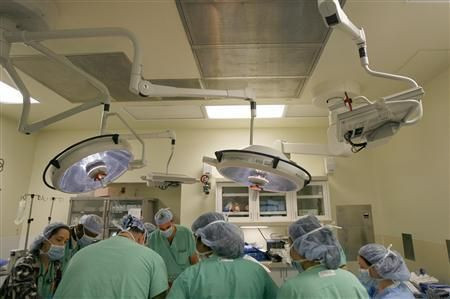Obamacare Rolls On: Health Insurance Exchanges Opening Oct. 1; HHS Says Premiums Will Be Cheaper

Even as Congressional Republicans are fighting to defund President Barack Obama’s signature health care law, one of its key features is set to open for business on Oct. 1.
Starting next Tuesday, individual Americans and small businesses will be able to buy private health insurance plans from new exchanges set up by the federal government and some U.S. states. Coverage through plans bought through this marketplace will start on Jan. 1 for those that enroll by mid-December. If citizens already have insurance through work or a spouse, they can still keep that plan.
Health plans on the marketplace are grouped into tiers based on what percentage of healthcare costs the insurance covers. On average, “bronze” plans cover 60 percent of costs; “silver” plans cover 70 percent; “gold” plans cover 80 percent; and “platinum” plans cover 90 percent of costs.
What price a person pays for their plan will depend on a number of factors, including state of residence, income, marriage status, and number of dependents. The federal government’s Healthcare.gov website contains tools to walk users through what options are available to them, though specific plan and pricing information won't be available til Oct. 1.
Premiums for the exchange plans are turning out to be even lower than expected, according to a report released Wednesday by the U.S. Department of Health and Human Services. In the 36 states where the federal government either fully or partially runs the marketplace, a person will have their choice of 53 health plans, on average. The average premium for the second-cheapest “silver” plan will be $328 before tax credits kick in -- 16 percent below initial estimates, according to HHS.
“We are excited to see that rates in the Marketplace are even lower than originally projected,” HHS Secretary Katherine Sebelius said in a statement. “In the past, consumers were too often denied or priced-out of quality health insurance options, but thanks to the Affordable Care Act consumers will be able to choose from a number of new coverage options at a price that is affordable.”
According to the report, at 27-year-old person living in Dallas with an annual income of $25,000 would pay $74 per month for the cheapest “bronze” tier plan and $139 per month for the cheapest “silver” tier plan, after tax credits. A family of four in Dallas earning $50,000 per year could pay as little as $26 per month for health insurance. More than half of uninsured people will be able to buy coverage on the exchanges for a monthly premium of $100 or less, according to HHS.
However, the report doesn’t give much detail about the more-expensive plans, or name the insurance companies that are offering plans through the exchanges. And insurance premiums often vary as much within states as between them; a New York City resident may pay $611 per month for the same coverage that a Rochester resident gets for $337 a month, the New York Times reports.
President Obama touted the exchanges’ savings while speaking alongside former President Bill Clinton at a health care forum in New York City on Tuesday.
“In many states across the country, if you’re, say, a 27-year-old young woman, don’t have health insurance, you get on that exchange, you’re going to be able to purchase high-quality health insurance for less than the cost of your cellphone bill,” Obama said, according to the New York Times.
© Copyright IBTimes 2024. All rights reserved.





















